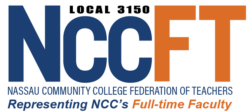David Naylor is the outgoing president of Toronto University. In this article on FinancialPost.com, which is an abridged version of the talk he gave last week, he discusses how important it is not to fall victim to two “university-attacking zombies:”
You may ask: What’s a zombie idea? Well, it’s one of those persistent and infectious pieces of misinformation, a meme that shouldn’t be alive but just won’t die.
There are two zombie ideas that trouble me these days.
Zombie 1: Universities ought to produce more job-ready, skills-focused graduates. Stop all this liberal arts guff and this social science silliness. What Canada needs to compete and win in the world economy are more folks with college diplomas, and universities that focus on preparing people for careers — for the real world.
Or, as the Governor of Florida memorably put in a radio interview 18 months ago: “You know, we don’t need a lot more anthropologists in the state. It’s a great degree if people want to get it, but we don’t need them here.”
Zombie 2: Those ivory towers full of fat-cat academics and loopy students asking unanswerable questions. Their wilful irrelevance is a waste of taxpayers’ money. Get them out of the public trough and get them doing things that Canadian business can really use.
Naylor offers a nuanced approach to thinking about how to deal with these “zombies,” and, refreshingly, he brings some hard data to the discussion. I especially appreciated these two excerpts:
But while the STEM disciplines are vitally important, inter-jurisdictional data do not really support the presumption that Canada’s competitiveness challenges will be solved simply by a massive increase in the output of scientists, technologists, engineers, mathematicians, and medical scientists.
Let’s remember here that successful companies, innovative nations, and healthy communities also depend on management, marketing, communications, design, and many other disciplines.
Indeed, in a borderless world, fluency in other languages and other cultures will have a great deal of influence on our success as a trading nation.
And this one:
In my field, medical research, countless discoveries that had no immediate application turned out to be the foundations for life-changing and live-saving innovations in clinical care. You can’t predict this in advance.
You know, John Polanyi was not thinking of inventing chemical ‘vibrational’ lasers when he did his Nobel winning research on non-thermal infrared chemiluminescence and reaction dynamics.
Similarly, Geoffrey Hinton’s research into machine learning algorithms and deep neural networks, has led to unexpected advances in computer vision, speech-recognition, data mining, and – astonishingly – real-time language translation that is now used by Google and Software by Microsoft.
There is another facet here. One needs excellence in research and scholarship across disciplines because no one can predict how disciplines will collide. So much of the best innovation is convergent. Let me give you an example. Lorna MacDonald teaches performance, opera, and vocal pedagogy in the Faculty of Music at the University of Toronto — a very strong program, internationally renowned. But how does it connect? Well, it turns out, that Professor MacDonald collaborates with the clinicians at the Hospital for Sick Children on cochlear implants, laryngology, speech-language pathology, and pediatric voice and hearing care.
I encourage you to read the whole article.
